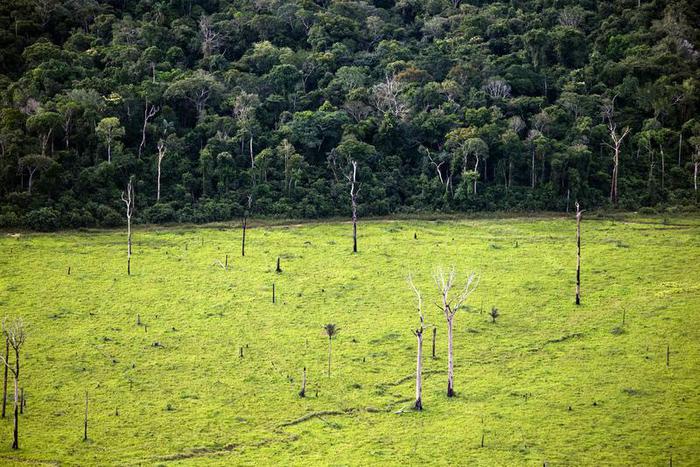Enlarge image
If greenhouse gas emissions are not stopped, the climate crisis could spiral out of control
Photo: Алексей Филатов / iStockphoto / Getty Images
According to the Paris Climate Agreement, the states have to sharpen their climate targets every five years.
The UN agreement is now almost six years old.
So it's high time for an update.
The good news: the majority of countries submitted their new climate plans a good six weeks before the climate summit in Glasgow, and many have made improvements. The bad: it's still not enough. Although many countries have now committed to becoming climate neutral by the middle of the century, there is currently a lack of interim goals. The promised emission reductions by 2030 are still far too low. The resulting gap between the savings necessary to limit global warming to an average of 1.5 degrees and the climate targets that have already been submitted is still huge.
If the countries really comply with the interim targets they have submitted so far, twice as much greenhouse gases would still be released into the atmosphere in 2030 as is justifiable for the Paris 1.5 degree target.
This is what the Climate Action Tracker (CAT) analysis project calculated in its latest “ranking” of climate targets.
The gap between the countries' climate plans and the permitted CO2 emissions is still around 23 gigatons of CO2 equivalents in 2030.
Little is happening in climate diplomacy at the moment: there has been little progress since May of this year.
The goals submitted since then only reduce the gap by around four gigatons.
It is hardly to be expected that the gap will be closed a few weeks before the decisive UN climate summit.
"Glasgow is the last moment to keep the 1.5-degree limit alive," said climate tracker analyst and climate researcher Niklas Höhne to SPIEGEL.
"In order to achieve the Paris goal, the countries that have already submitted new goals would have to exceed them, and those that have barely raised their goals have to reconsider their decision," said Höhne.
In addition, the 70 or so countries that have not yet submitted any new targets should do so quickly.
Country ranking: halfway good, bad, laggards
Germany is also not the model student it thinks it is: In the ranking, the German climate ambitions are rated as "unsatisfactory" despite the improved target. So far, the measures are not sufficient to meet the 1.5 degree target. According to Höhne, this is mainly due to the late phase-out of coal in 2038 - just seven years before the promised climate neutrality. In addition, the CO2 price is too low and the expansion of renewables is not going fast enough. "Germany is better than others, but still a long way from what is needed," said Höhne.
Those countries that have submitted a new climate target but have not raised or even lowered it do even worse than Germany. According to climate researcher Höhne, this completely ignores the logic of the climate agreement. These include countries that are central to the negotiations, such as Australia, Brazil, Russia and Mexico. The worst ratings were given to Russia, Saudi Arabia and Iran. However, these countries have already attracted attention in recent years as the brakes on international climate negotiations.
The only exemplary country is the African Gambia - with its climate plans it is the closest to the 1.5 degree target.
While that is positive, unfortunately it is practically irrelevant for the climate negotiations, because the country is neither economically nor politically a heavyweight.
The ranking also shows that especially small countries like Costa Rica, Ethiopia, Kenya, Morocco, Nepal and Nigeria have ambitious plans.
The climate diplomats are eagerly awaiting the new climate target from India.
The country has not yet presented a new plan - but it could send an important signal, especially for emerging and developing countries, and create a new “momentum”, as climate negotiators call it.
The last big “momentum” was in the second half of 2020, when the UK, the EU and China all presented ambitious targets.
Then the USA, Japan and Korea followed suit in the spring of this year.
Since then, however, it has become quiet.
But there is good news: After all, 131 countries have already committed to climate neutrality - or at least are discussing it.
If all countries kept this long-term promise, the temperature rise could be limited to two degrees by 2100.
The big question now is how you want to do it - and above all, how quickly.


/cloudfront-eu-central-1.images.arcpublishing.com/prisa/DOOQ2YEAZJCSNITR6TA2ARDQT4.jpg)












